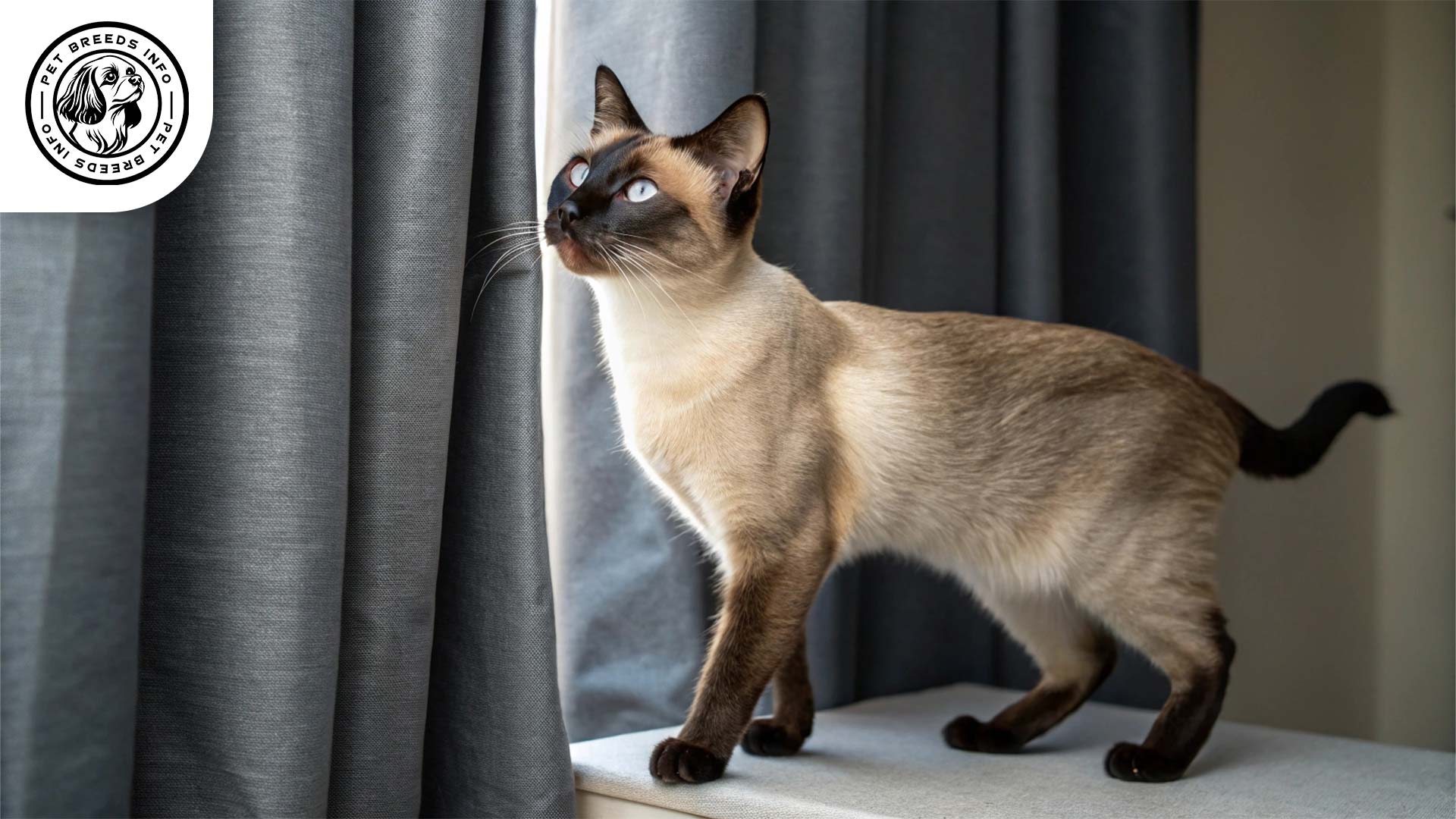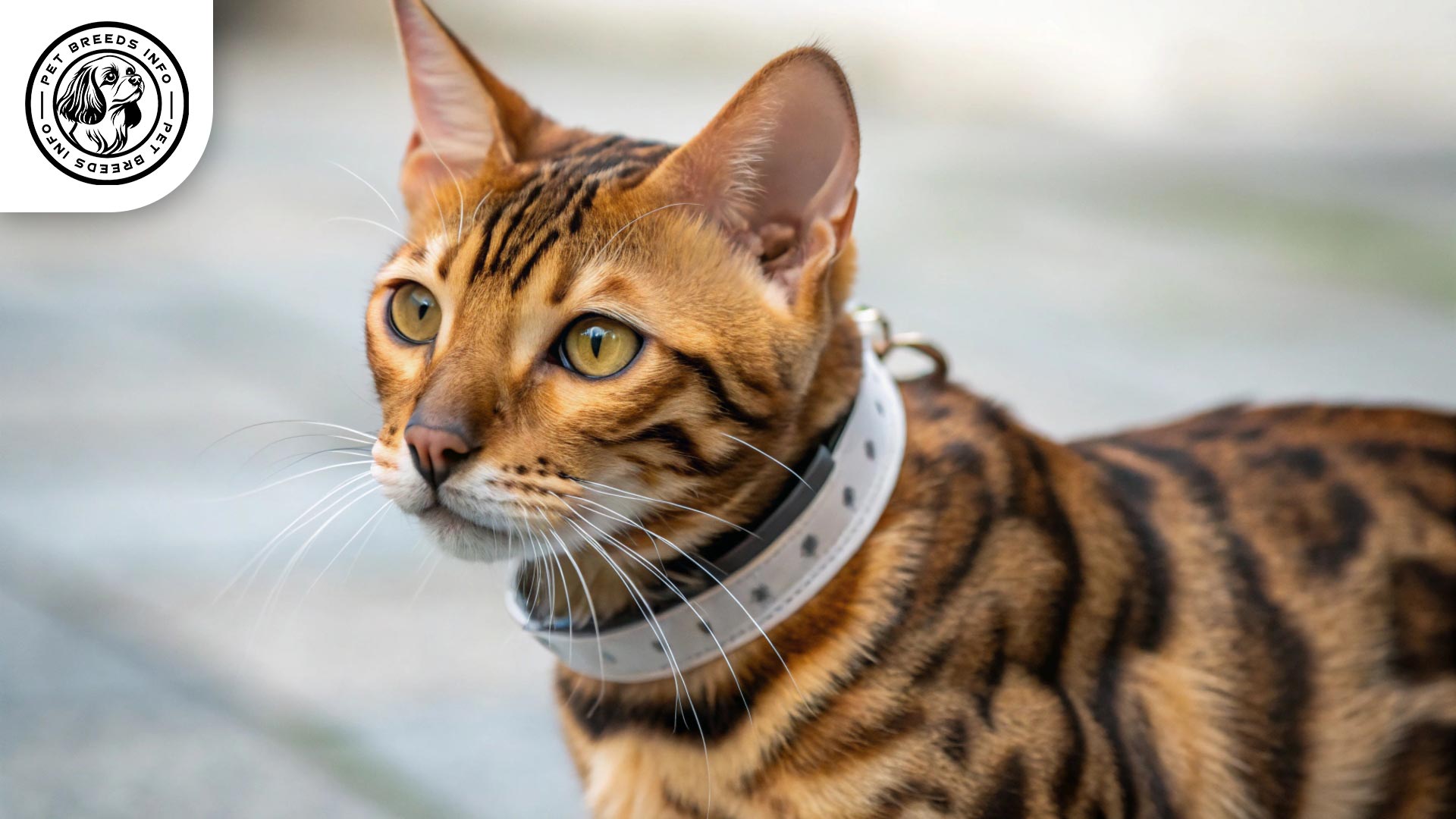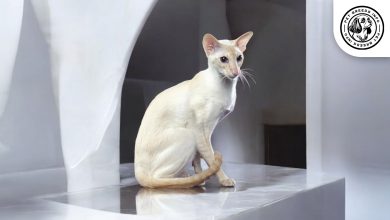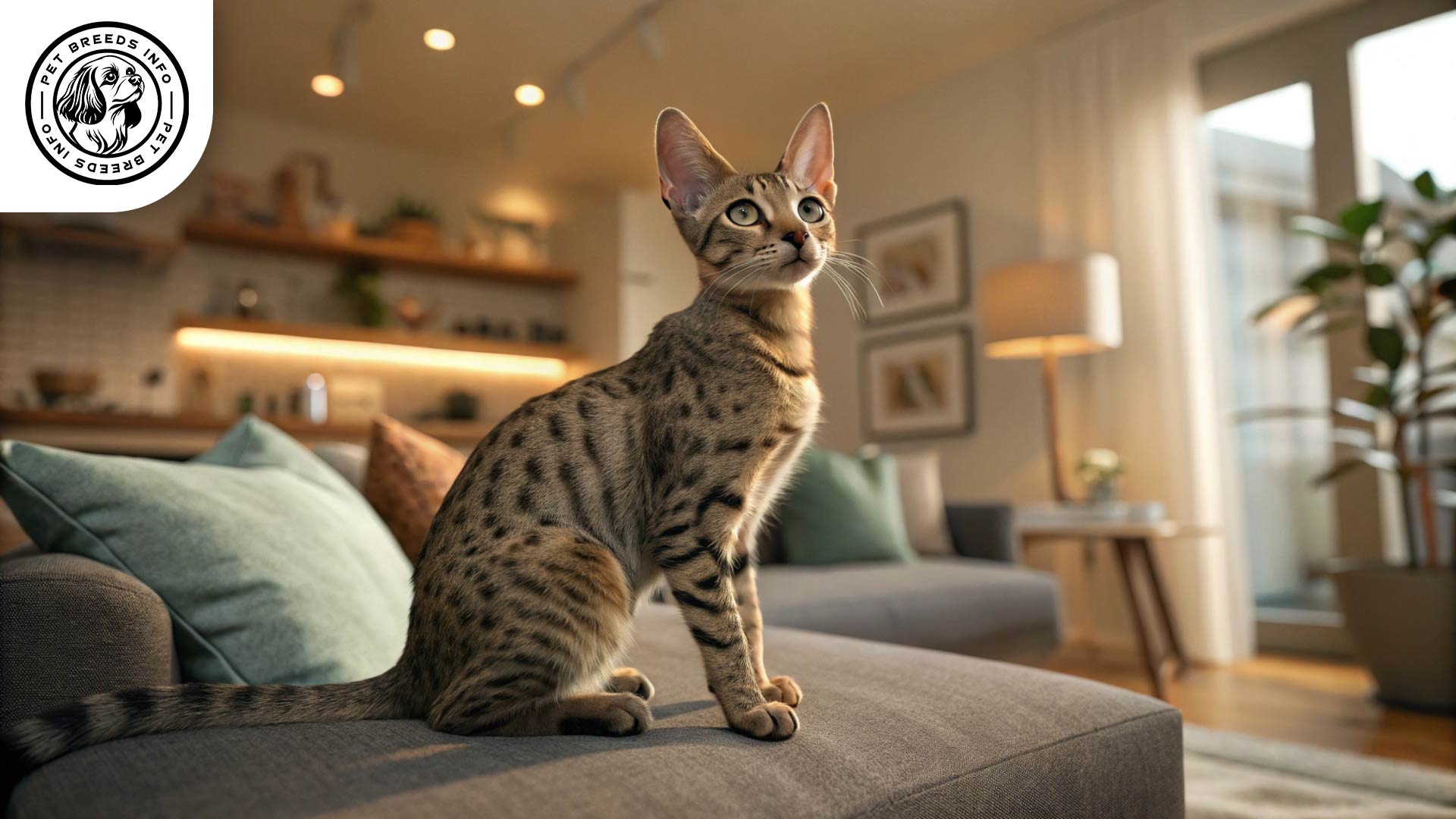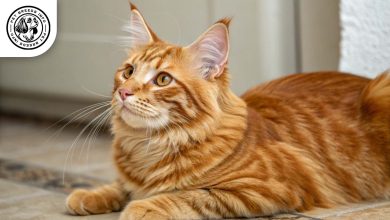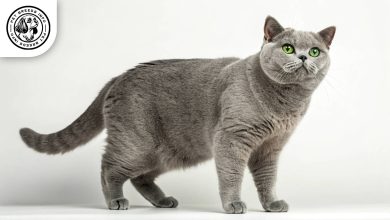Thai Cat Breed: Size, Health, Price & Personality
General Introduction of the Breed
The Thai cat, also known as the Traditional Siamese, is a breed originating from Thailand. It is an ancient breed that closely resembles early Siamese cats before they were selectively bred for a more slender appearance. This breed retains the elegant, rounded features of the old-style Siamese with a strong connection to its historical roots.
Table of Contents
| Weight | 8-14 lbs |
| Lifespan | 12-16 years |
| Diet | High-protein diet, wet/dry food, occasional raw |
| Care | Low-maintenance coat, minimal shedding |
| Health | Generally healthy; may have heart or dental issues |
| Color | Seal, blue, chocolate, lilac point |
| Nature | Intelligent, social, affectionate, vocal |
| Price | $500 – $1,500 |
Physical Characteristics
The Thai cat is a medium-sized breed with a muscular and well-proportioned body. Males typically weigh between 10-14 pounds, while females are slightly lighter, ranging from 8-12 pounds. Their coats are short, sleek, and lie close to the body, requiring minimal grooming. The breed is best known for its striking color variations, including seal, blue, chocolate, and lilac point.
The eyes of the Thai cat are almond-shaped and vivid blue, giving them a captivating appearance. Their ears are medium to large, slightly rounded at the tips, and set to complement their wedge-shaped head. The tail is long, proportionate, and slightly tapered. Their soft, low-maintenance coat and elegant features make them an attractive feline companion.
Personality and Temperament
Thai cats are highly intelligent and quick learners, often mastering tricks and commands with ease. They are energetic and thrive on interaction, making playtime an essential part of their daily routine. Strongly attached to their owners, these cats form deep bonds and often follow their humans around the house.
Known for their social nature, Thai cats enjoy the company of children and other pets. They are vocal, expressing their needs and emotions with a friendly, conversational tone. While playful, they also have a sensitive side, responding to changes in their environment. Providing a stable and engaging home is key to their happiness.
Care and Maintenance Requirements
Due to their active nature, Thai cats need regular exercise, whether through interactive play, climbing cat trees, or chasing toys. They adapt well to apartment living as long as they receive enough stimulation and companionship.
Their short coat is low-maintenance, requiring only occasional brushing to remove loose hair. Shedding is moderate, making grooming tasks minimal. They are sensitive to extreme temperatures, so keeping them indoors in harsh climates is advisable.
Read More: Ragdoll Cat
Regular hygiene practices, such as nail trimming, ear cleaning, and dental care, are crucial to keeping them healthy. Bathing is rarely needed unless the cat gets particularly dirty.
Diet and Nutrition
The Thai cat thrives on a protein-rich diet, making high-quality dry or wet cat food essential. A balanced raw or natural diet may also be beneficial. They require a diet that ensures muscle maintenance and healthy development.
Avoid feeding them toxic foods like onions, garlic, chocolate, or dairy products. Portion sizes should be appropriate for their activity level, typically divided into two balanced meals daily to maintain a healthy weight.
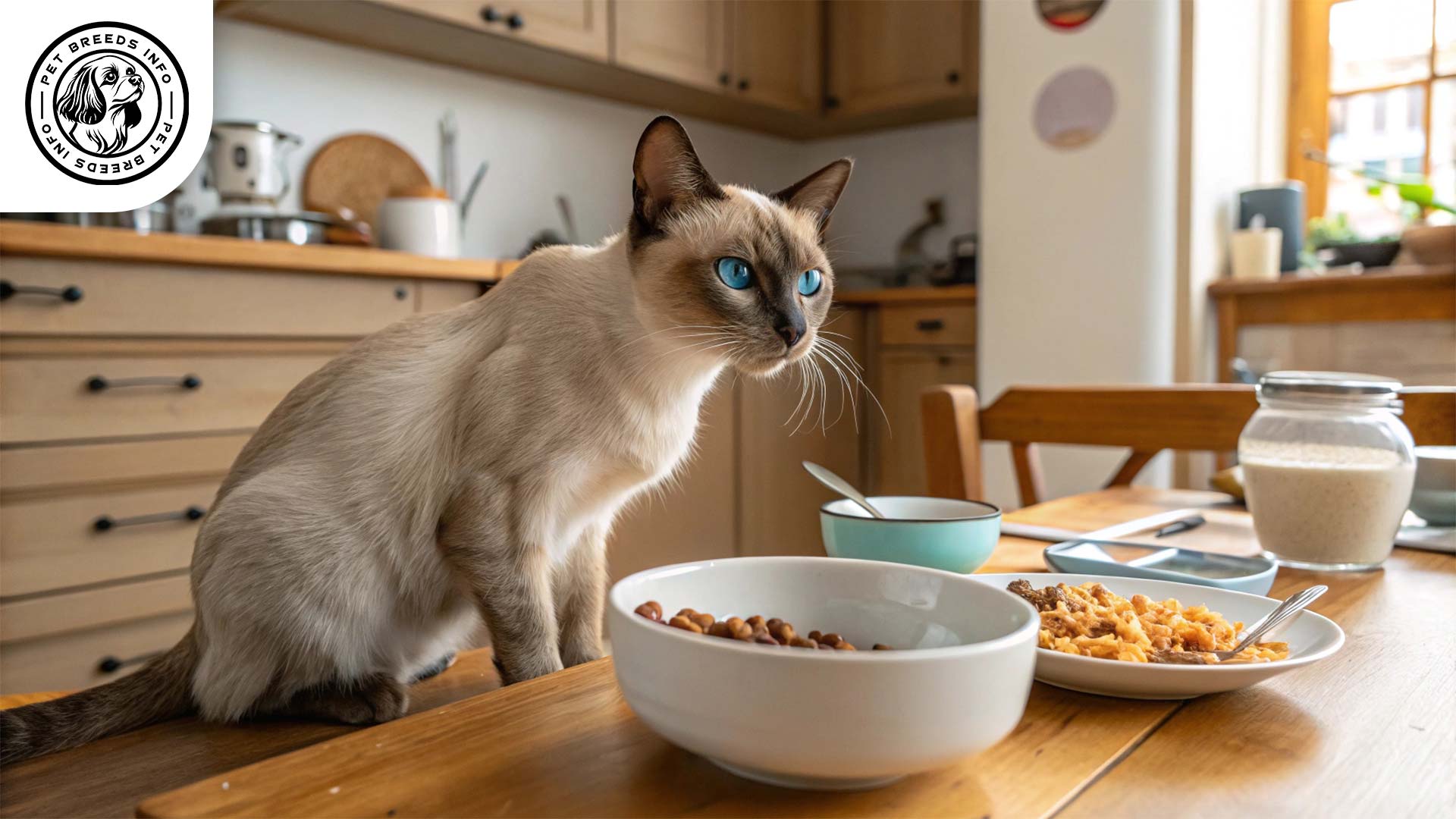
Health and Common Medical Issues
Thai cats are generally healthy, but like all breeds, they can be prone to genetic conditions. Some common concerns include respiratory issues, dental disease, and occasionally, heart conditions like hypertrophic cardiomyopathy.
The breed typically enjoys a lifespan of 12-16 years with proper care. Routine veterinary check-ups, vaccinations, and parasite prevention are necessary for their well-being.
Training and Behavior Management
Thai cats are easy to train due to their intelligence and curiosity. They respond well to positive reinforcement, so rewards and praise are effective tools in shaping their behavior.
Read More: Somali Cat
Early socialization is key to ensuring they grow into confident and well-adjusted pets. Teaching them basic commands, using scratching posts, and introducing routine playtime help reinforce good habits.
Interaction with Other Animals and Humans
Thai cats are affectionate and outgoing, making them excellent companions for families, singles, and elderly owners alike. They get along well with children and most pets, provided proper introductions are made.
They are not overly independent and prefer interaction over solitude. Left alone for long periods, they may become lonely or anxious. Owners who spend ample time at home or have another pet for companionship will find them highly rewarding.
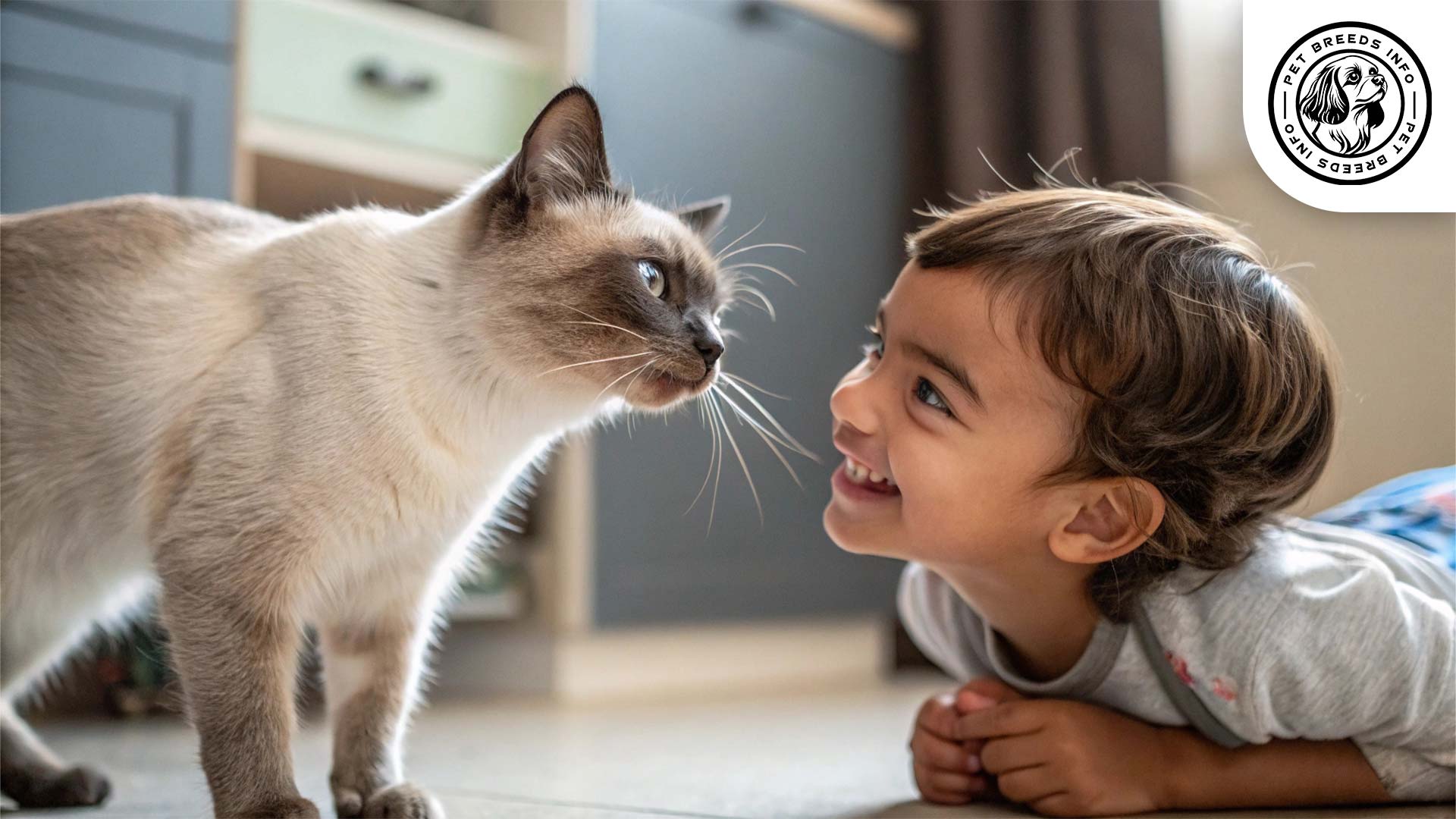
Price and Availability
The price for a Thai cat varies, typically ranging from $500 to $1,500, depending on breeder reputation, location, and lineage. Adoption from shelters or rescue centers may also be an option at a lower cost.
When acquiring a Thai cat, it is important to seek reputable breeders who follow ethical practices and health-screen their cats. Ensuring proper documentation and medical history is key before making a purchase.
Conclusion and Final Thoughts
The Thai cat is an affectionate, social, and intelligent breed, making it an excellent choice for families or individuals seeking a loyal companion. Its adaptability and playful nature make it a delightful addition to any home.
Read More: Russian Blue Cat
Potential owners should consider their need for attention, interaction, and a stimulating environment. With proper care and companionship, the Thai cat will be a loving and devoted pet for years to come.
FAQ
How much grooming does a Thai cat require?
Very little. Their short coat needs only occasional brushing to remove loose hair, and they are moderate shedders.
Do Thai cats need a lot of attention?
Yes. They form strong bonds with their owners and thrive on interaction. They don’t like being left alone for long periods.
What is the personality of a Thai cat?
They are intelligent, playful, and highly vocal. They enjoy socializing and often follow their owners around the house.
What kind of diet is best for a Thai cat?
A high-protein diet with quality wet or dry food is best. Avoid toxic foods like onions, garlic, and chocolate.
